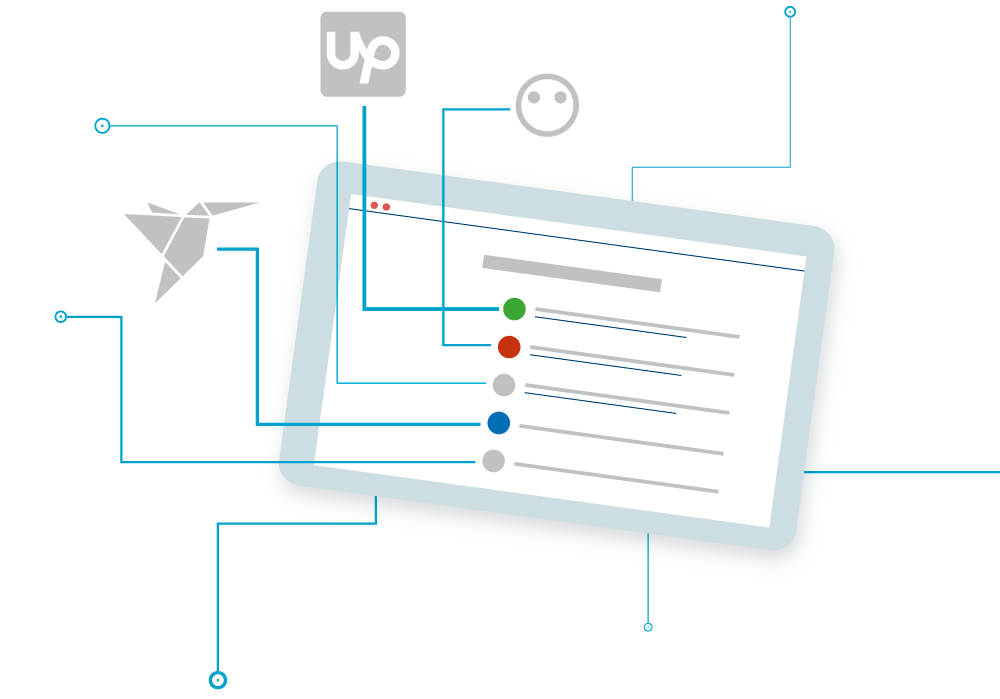The freelance talent revolution: Reflections from Talent R-Evolution Spain 2024


Andrea Jordan
Operations Manager
On October 2, at the Google for Startups campus in Madrid, we celebrated the third edition of Talent R-Evolution Spain 2024, the summit where the main players in freelance platforms in Spain met.
With the participation of Tomás Pereda Riaza (Deputy General Manager of Fundación máshumano), Jon Younger PhD (Partner at Human Cloud and Freelancer First Study Groups), Alex Collart (co-founder of Outvise), Nico de Luis (co-founder of Shakers), Antonia Patzelt (Senior Account Manager at Freelance Unlocked), Ignacio Marinas Monsalve (Partner Iberia at OMS & Co), our CEO Sandra Arevalo and the voice of the audience thanks to Kuorum.org‘s digital voting technology, the event offered a unique opportunity to discuss the emerging dynamics of the future of work, especially the growing freelance revolution.
Related video content
“In the United States today, 50% of the working population is freelance or does some type of freelance work”
Alex Collart highlighted in his opening remarks that this radical change in the labour market not only changes the rules for workers, but also for companies, which must adapt to this new paradigm.
“Companies that do not structurally use freelance talent in the next five years will disappear.”
Longevity and technology as drivers of change
In his speech, Tomás Pereda Riaza reflected on the trends in the current world of work and how these are not passing fads, but the result of profound transformations. According to Pereda, the talent revolution is not an accident, but the logical outcome of decades of changes driven by technology and longevity.
“We are in the fourth talent revolution. Work as we know it is changing irreversibly.”
The key factors that stand out in this new paradigm are:
- Increased life expectancy, with better physical and mental health
- Impact of technology, which transforms how we learn and work throughout our lives.

Learn the skills to thrive freelancing online

Future of work and Open-Talent
In the first roundtable on the Future of Work and Open-Talent, Tomás Pereda Riaza, Alex Collart and Ignacio Marinas Monsalve discussed the forces driving the movement of talent towards freelancing.
Tomás highlighted how the rapid advance of knowledge, especially in technology, is leading many professionals to prefer independence, seeking stability and greater control over their future.
Alex stressed that the balance between supply and demand for talent has changed, favouring specialised talent seeking flexibility and interesting projects rather than traditional corporate careers.
Ignacio, for his part, pointed out that in countries like France, unlike Spain, they are already more advanced in this model, with a strong ecosystem of freelancers and companies that recognize the benefits of using independent talent for specific projects, especially in highly specialized sectors.
All three agreed that
The Open-Talent model is becoming established as a structural response to the talent shortage and changes in the global labour market.
The integration of freelance talent
In the second round table, in which our CEO Sandra Arevalo participated , together with Nico de Luis , Sandra addressed the importance of effective integration of freelancers into teams, highlighting that the key is to find a balance between the independence of the freelancer and their connection with the company’s mission.
“When looking for a freelancer, the focus is often on technical skills, but what really ensures their integration into the team is their alignment with the company’s purpose.”
She also stressed the need for agile and open communication tools to ensure that freelancers feel part of the team. Companies should have clear processes and tracking methods that allow for quick evaluation of work progress.
Nico added that remote work presents a particular challenge for team building , with clear communication being crucial to manage expectations and set clear milestones between parties. He highlighted that the duration of the project also influences the relationship between people, as in short projects deep integration may not be necessary, but in any case, it is a challenge for all types of working relationships.
Sustainability and growth: pillars of freelancers’ work
Sandra and Nico shared key tips for those starting their freelance career:
- Take advantage of freelance platforms, especially in the early stages.
- The importance of diversifying projects and platforms, avoiding dependence on a single source of income.
“Platforms can be a great starting point, but you shouldn’t neglect the possibility of having direct clients.”
Success stories in freelance management
In the third roundtable, Nico de Luis and Ignacio Marinas Monsalve shared examples of how their companies have worked with freelance talent to carry out strategic projects for different types of companies.
Ignacio highlighted the success story of Kering, a luxury giant that relied on OMS to internationalize its e-commerce operation, due to its ability to quickly form hybrid teams of freelance experts and internal employees, combining agility and flexibility in project execution.
Nico, for his part, spoke about how Shakers works with companies of different sizes, from startups (with teams of freelancers developing essential functionalities to obtain financing rounds) to large corporations (such as Inditex, which integrated high-level freelance talent, overcoming the requirements of on-site presence).
Both agreed that the key to success has been to evangelize companies about the benefits of working with freelancers and the ability to adapt, in order to achieve the creation of customized teams, quickly to address the needs of each project.
The search is over!

Digital platforms: advantages and effective use
In the final roundtable, Sandra Arevalo joined Antonia Patzelt and Alex Collart to discuss how to get the most out of freelance platforms.
When asked how many platforms freelancers in the audience were registered on, Sandra commented:
“Each platform requires maintenance and activity to be truly profitable. One is too few, but more than four could be difficult to manage.”
Alex highlighted that many companies that try one platform end up using several due to the advantages they offer over direct contracting.
On how to choose the right platform, both for freelancers and businesses, Sandra mentioned that with over 500 freelance platforms available according to the World Bank, choosing a platform can be a challenge. Her recommendation was to research the level of activity and specialization of each platform:
“Each platform requires maintenance and activity to be truly profitable. One is too few, but more than four could be difficult to manage.”
For her part, Antonia added:
“Each platform has its USP (Unique Selling Proposition), which means that being on multiple platforms gives you more options and more varied projects, which is crucial for freelancers at different stages of their career.”
The three speakers agreed that:
- The choice between a generalist or a specialized platform depends on the specific needs of both the freelancer and the client. However, specialized platforms tend to offer closer support and a higher probability of finding the perfect match for both sides.
- For clients, it is crucial to clearly and thoroughly define the profile and role they are looking for. This will ensure that they can attract the right freelancers and facilitate successful collaboration.
- Both freelancers and companies need to be mindful of the number of platforms they participate on. For freelancers, managing three platforms seems to be ideal for efficiently handling communications and opportunities. Companies, on the other hand, should look for platforms that fit their specific needs and offer support to better manage talent.
The Freelancing Revolution
The closing of the day was led by Jon Younger PhD , who shared his perspective on the freelancing revolution, pointing out that the concept of freelance has evolved considerably in recent years.
He recalled that, less than two decades ago,
“Being a freelancer was seen as a disreputable option, reserved for those who couldn’t hold down a steady job.”
However, he highlighted the explosive growth in the number of freelancers in the United States, which has risen from 15 million to between 60 and 70 million, along with the emergence of platforms that make life easier for freelancers.
Although his goal of promoting a prosperous and fulfilling working life for all freelancers may seem naive, he considers it an achievable goal. To this end, he stresses the importance of continuing to collaborate, sharing best practices, and investing in technology and campaigns that help promote freelancing.
A meeting point of reference
Talent R-Evolution Spain 2024 highlighted:
- The importance of both companies and freelancers adapting to the new reality of flexible work.
- The role of agile and flexible collaboration as keys to success in the future of work.
- Diversification and specialization emerge as crucial elements for success, with platforms being key allies on this path.
The freelance revolution is not a passing trend, but a profound transformation that is redefining the world of work.

